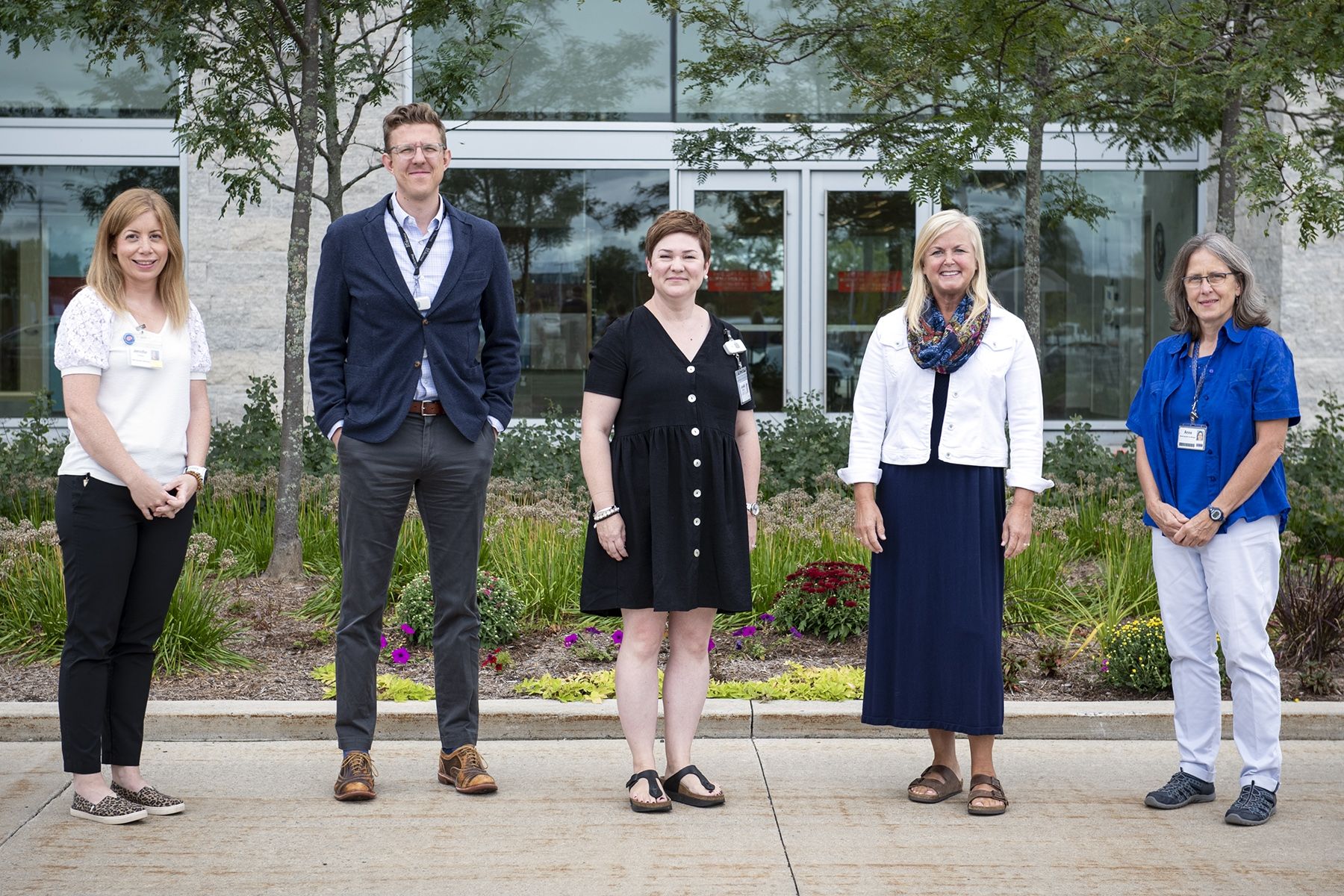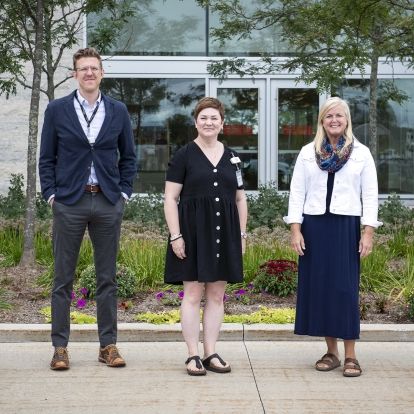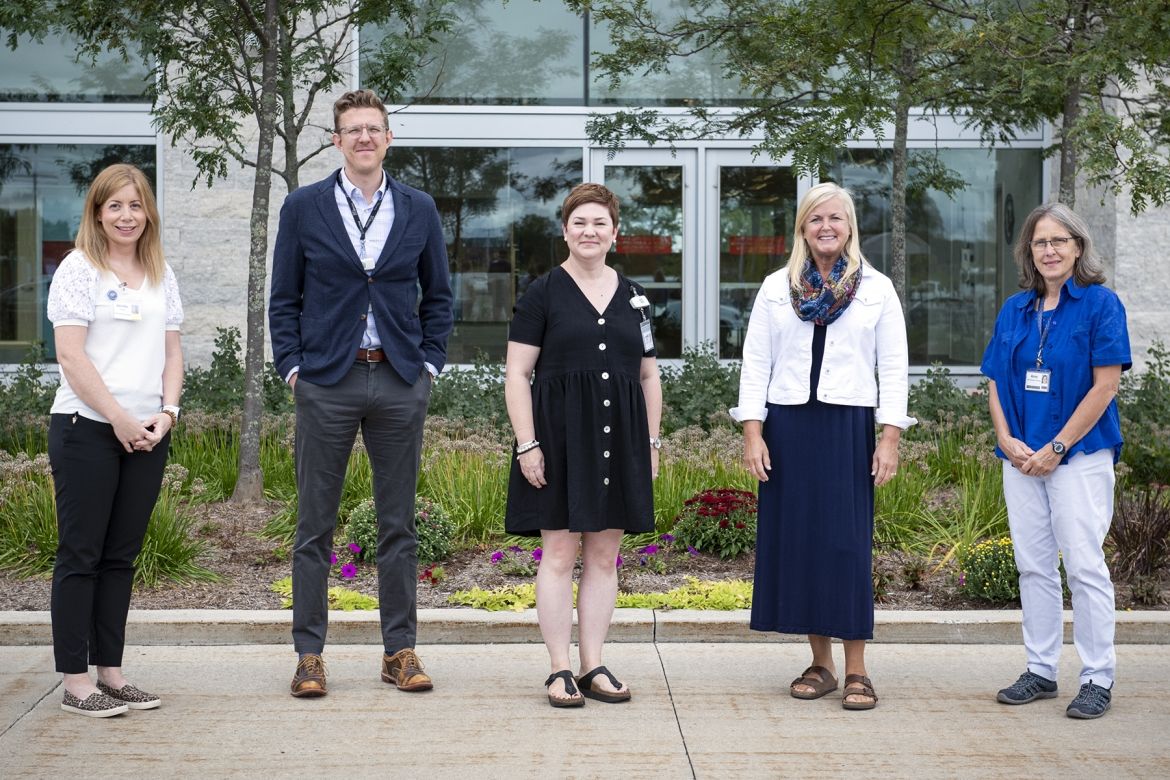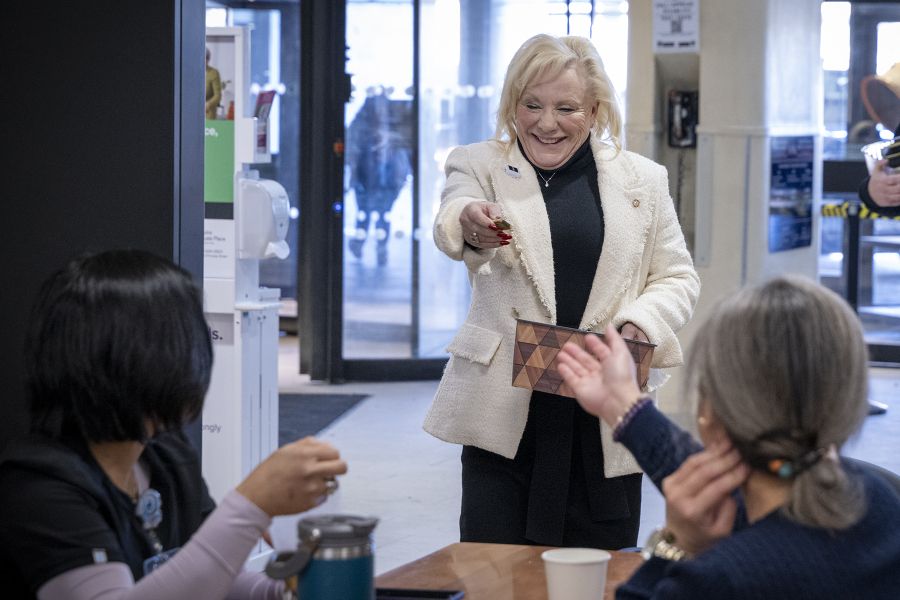
The sooner patients needing rehabilitation can access this care after having a stroke, the better their health outcomes will be, including regaining their independence and integrating back into their communities.
Before stroke team members from Kingston Health Sciences Centre (KHSC) and Providence Care Hospital (PCH) joined forces in 2019 to plan, implement and monitor a new fast-track rehab referral process, stroke patients in the Kingston area experienced longer stays at KHSC before transferring to PCH for rehabilitation.
Eighteen and a half days was the midpoint or median time it used to take for all stroke rehab patients to be transferred to inpatient rehabilitation after they were admitted to KHSC. The provincial target is five to seven days and the provincial median is approximately eight days.
By keeping the best care for patients in mind, the joint team created a solution that worked for both organizations and decreased the median time to access rehab to seven days for about 50 per cent of all stroke rehab patients. These fast-tracked patients are those who can, among other things, tolerate at least one hour of therapy, whose vital signs are stable and who have a plan in place for their acute medical issues.
For all rehab patients, including those whose needs are less straightforward, their median time to access rehab decreased to 10 days.
“Not only did this joint effort create more timely access to rehabilitation, it fostered more communication and collaboration between our acute and rehab stroke teams, which will assist our ongoing efforts to improve the quality of stroke care for patients in the southeast region,” says Dr. Benjamin Ritsma, PCH’s clinical director of Stroke Rehabilitation.
When planning the new fast-track rehab referral process, the team realized the highest impact would be focusing improvement efforts on the time from referral to acceptance. This portion of the process was taking on average three to five days compared to the newly set regional target of four hours.
The new process involved replacing time-consuming activities – such as patient assessments at KHSC by PCH staff, resulting in written patient summaries – with an enhanced referral package from KHSC that contains key information needed to accept a person for rehabilitation. This information would have been previously collected from detailed chart reviews and onsite assessments.
Sending all the referral information together and ensuring physicians and the full PCH stroke rehab team get the full referral package, has allowed the receiving PCH team to simply confirm everything has been received and perform a high-level review. It has also given them more time to consider the medical needs of the people they will soon be caring for.
In the first year of implementing and monitoring the new process, the team was able to achieve the target of making the decision to accept straightforward rehabilitation candidates in less than four business hours, with the average time-to-decision being one hour and 18 minutes.
“A process is only as good as the people working together to make it work,” says Dr. Al Jin, stroke neurologist and medical director of the Regional Stroke Centre at KHSC. “Dr. Ritsma and the KHSC and PCH teams have helped transform the flow of stroke patients to the acute stroke unit, to rehab and back home.”
Today, ongoing process monitoring using joint rehab referral data pulled from PCH’s referral tracker in its electronic record is providing informative insights that are essential to future improvements.
When the Stroke Distinction surveyors from Accreditation Canada are at KHSC this year December 12-14, they will assess teams across five categories, including this innovative project to fast-track referrals to rehabilitation.
Gallery


Several stroke team members working to improve patients’ access to stroke rehabilitation (from left): Jennifer Holliday, Stroke Specialist Case Manager at KHSC; Dr. Benjamin Ritsma, PCH’s Clinical Director of Stroke Rehabilitation; Jessica Bonney, Pat



